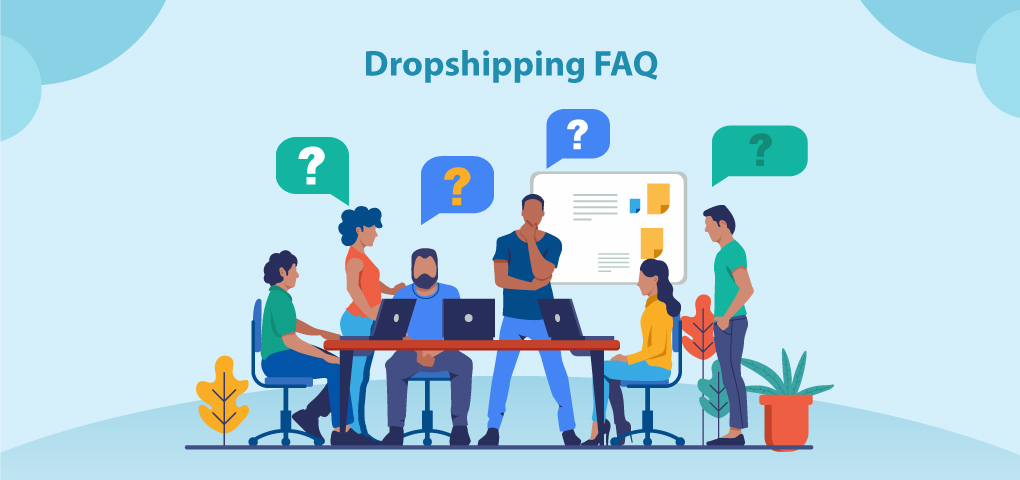Hello Entrepreneur! Your presence here means you have already stepped into the corporate world or are about to take the plunge. Why not begin this journey with a website that reaches millions of consumers? With the world shifting online, an ecommerce website builder helps you take your business online. It’s an essential step as it ensures a smooth journey for your customers so that they continue to shop from you. Let’s make it easier by providing a list of the best ecommerce website builders, which also guide on how to build an ecommerce website.
10 Best Ecommerce Website Builders
1. Wix
One of the best websites of all. Creating an online store with Wix is the easiest and is the most suitable for small businesses and boutiques. For instance, if you own a dropshipping enterprise and want to establish an online store to create a digital presence, Weebly can be the right choice for you. Moreover, if you need a dropshipping supplier, SaleYee is heaven for novel businesses in the industry. It is the most efficient dropshipping platform under ZongTeng groups.
One of the most lucrative business options on the internet, dropshipping, fetches huge incomes for entrepreneurs who have adopted the business module. In this module, the store doesn’t keep the product itself in stock. Instead, it purchases the items from a third party and has it shipped directly to the customers. The website further helps business owners to create one of the best ecommerce websites. SaleYee dropshipping platform stands out as a great dropshipping supplier making the business more accessible, faster, and convenient while entailing low risks.
Pros:
- Business owners can get 50% off Wix Premium plans until the 24th September
- Great design options
- Excellent help and support
- Competitive pricing range
- Perfect for smaller sites
Cons:
- Website templates can’t be changed after publishing
- Lack of storage space
2. Weebly
It can create a respectable website but is bettered by its competitors Wix and Shopify. However, it is a free ecommerce website builder and is the most suitable for enterprises that want to keep their costs low.
Pros:
- Impressive design and website building features
- Entails no transaction fee
- Smooth integration with Stripe payment processing
- Supports both physical and digital products
Cons:
- Lacks sales features
3. BigCommerce
One of the largest ecommerce platforms, BigCommerce, has helped businesses to generate over $17 billion in aggregate revenues and is a reputed brand in the industry. It serves the business owners with a lot of tool options to choose from.
Pros:
- SEO tools- Fully customizable to adjust to any SEO strategy.
- Adaptive site themes- Built-in HTML, JavaScript and CSS with beautiful themes.
- Easy UX- Easy-to-use, customizable storefront builder that enables you to build your perfect site.
- Security- BigCommerce’s PCI 3.1 Level 1certification and multiple data centers ensure data protection.
Cons:
- Limited mobile support for store management.
- Instates a cap on the value of sales you can make.
4. Shopify
This one is worth including in the list if you are looking to create one of the top ecommerce websites and plan to launch a large scale online store. It is one of the best choices available globally, with a vast range of sales and fulfillment features. Shopify includes over a hundred free and premium professionally designed ecommerce website templates that you can use for your store.
Pros:
- Unparalleled sales and reporting features
- Easy to set up, utilize, and edit your store
- Excellent and numerous support options
- Fantastic design features
- Provides a 14-day free trial
Cons:
- Can be a bit expensive as it demands a high transaction fee from merchants
- Restricted API call volume
- Limited URL structure customization
5. Kibo
It is best for teams with coding experience and for those who want to redesign their store themselves rather than beginning with a template.
Pros:
- Compatible with mobile design
- Built-in SEO tools
- Easy platform upgrades
- Kibo simplifies business management
- Omnichannel support
Cons:
- Bugs or other issues may arise as Kibo is still relatively new.
6. Volusion
An ecommerce store that works with you and helps you grow is now easy to create with Volusion. Volusion allows owners to customize their storefront while they can start selling in minutes.
Pros:
- Inventory management feature.
- Customer relationship tools.
- Third-party software integration.
Cons:
- As they are maintaining two different platforms, they impose a hefty tax on engineering resources.
7. Magento
It is excellent for brands that are heavily invested in IT or development. It allows brands to have complete control over their ecommerce store and is owner friendly.
Pros:
- Powerful inside
- Creates better brand interaction
- 100% control
Cons:
- The platform has few issues as their bug update requires site and integration QA
8. WooCommerce
Building your store is no more guesswork with WooCommerce. It is a significant store builder that does not require coding and provides multiple payment options.
Pros:
- WordPress integration
- Reliable customer service for an unbreakable bond
- Sales tax made simple
Cons:
- Business owners tend to encounter lags in the live store and high developer costs when doing so.
9. Squarespace
It is a widely used platform for businesses of all kinds. It is incredibly efficient for creative minds and artists, such as bloggers. It comes with elegant design options and helps in sustaining customer engagement.
Pros:
- Stunning site themes and functions.
- It boasts of award-winning customer support.
- Subscription model compatibility.
Cons:
- Since it offers limited shipping and payment options, its discounting features are complex, making things difficult in the long run.
- Doesn’t integrate a lot of options for sales channels
10. 3dcart
3dcart provides an extremely flexible platform to build the store of your choice. It is an excellent website builder for businesses that require several tools in their ecommerce stores.
Pros:
- Advanced shopping solution
- Multi-lingual support
- Scalable
Cons:
- It is challenging to reach the customers during heavy traffic periods as 3dcart has limited CDN.
Conclusion
These ecommerce website builders offer enough benefits to help ecommerce companies to improve their businesses substantially at reasonable ecommerce website cost with the desired functions. They provide an interface for seamless customer experience and multiple benefits to the owner.
Whether you are a small business, an ecommerce seller, or merely an individual with an incumbent company, having a website is almost mandatory in the digital age.




